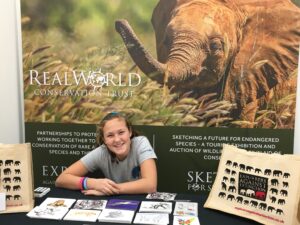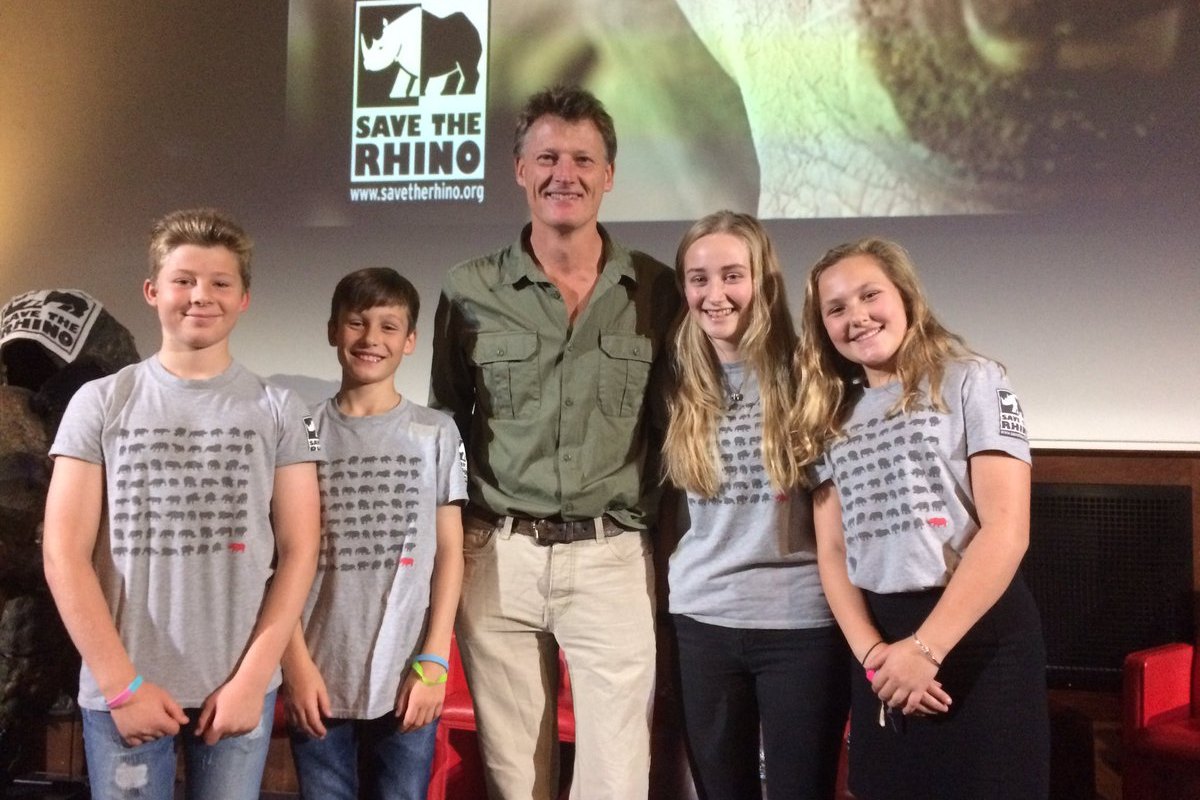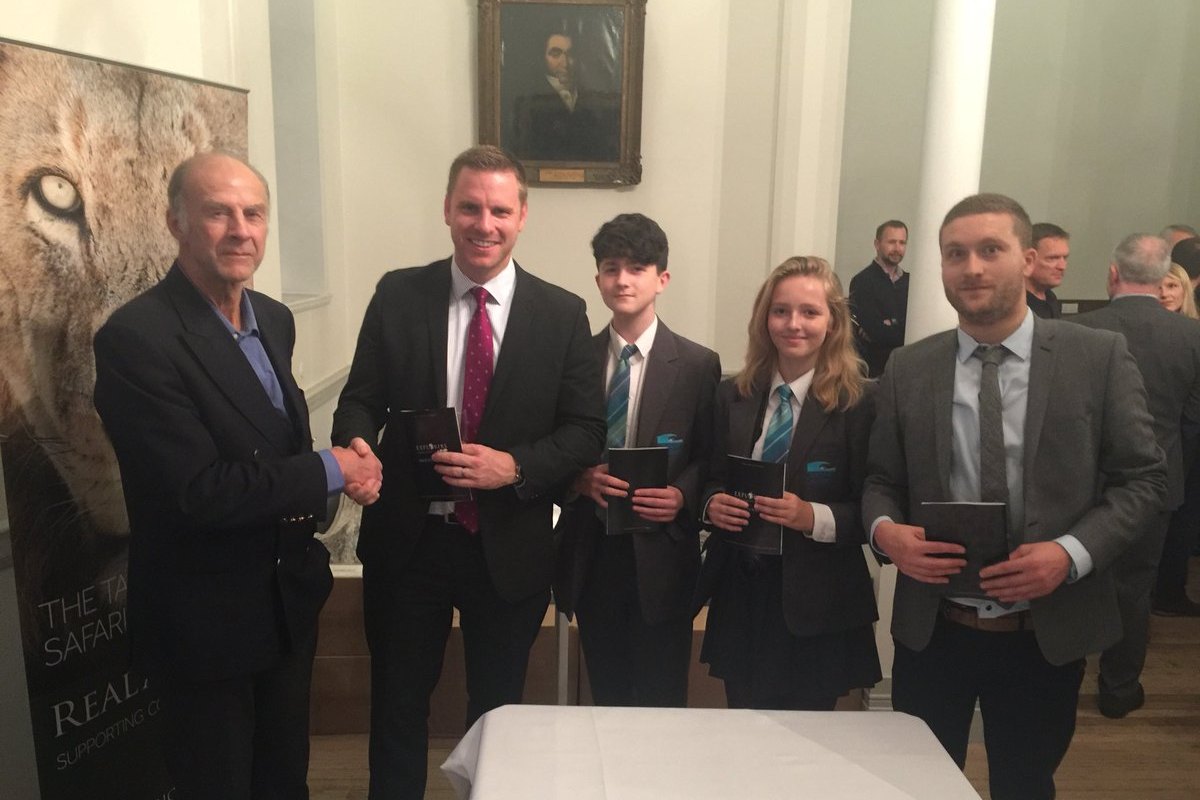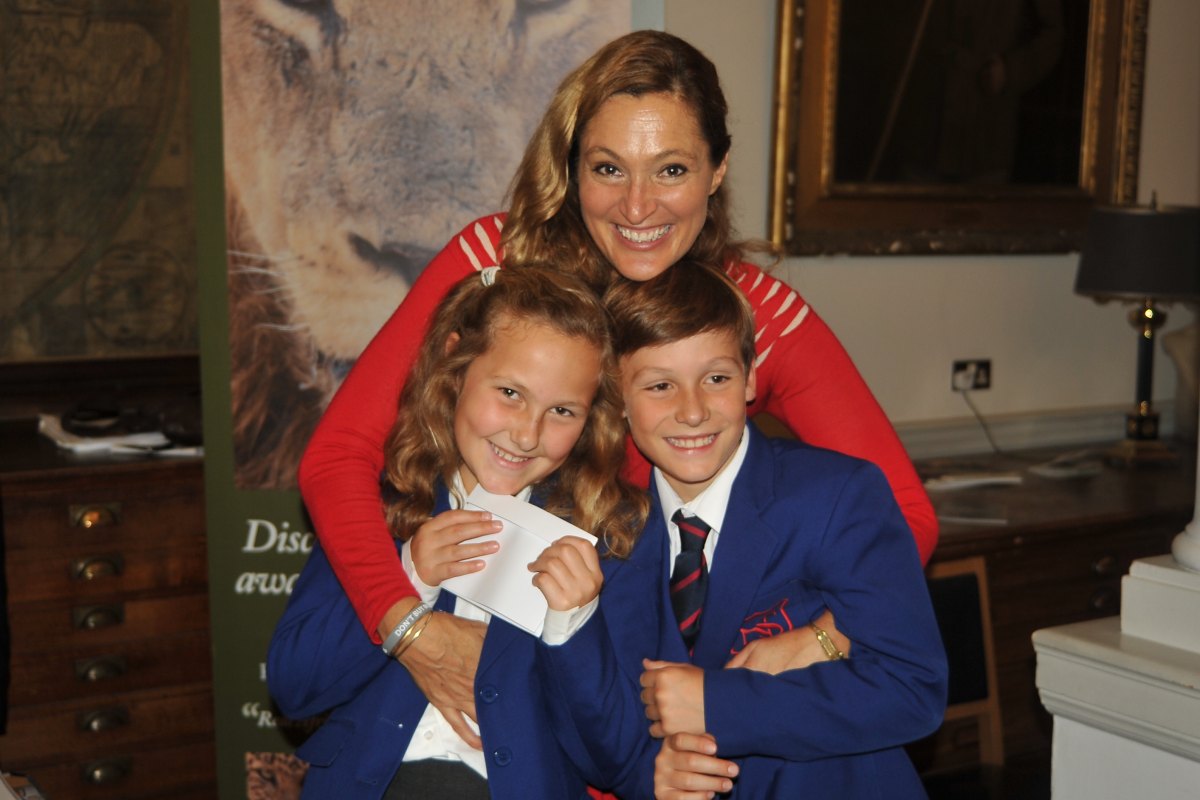We work with schools to help young people build their knowledge and understanding of the environmental challenges facing our wildlife and wild spaces. Our aim is to inspire positive action.
Our Schools Against Extinction education initiative is focused specifically on raising awareness about endangered species and the threats facing them.
We can help your pupils get a better understanding of our planet’s most endangered species, the threats they face, and how we can all act to ensure their survival.



Sketch for Survival Junior 2024
Sketch for Survival Junior helps to raise vital awareness about species extinction and biodiversity loss while also raising funds for projects around the world.
The competition showcases a range of different art styles and unites the voices of young people from all around the world in support of conservation. In 2023 we received over 3,000 entries from 93 countries.
In 2024 we have three age groups – Up to 7 Years Old, 8-12 and 13-16. Submissions close on 30 June.
How to enter as a school
- Read through the competition guidelines – these explain what you can enter, and what size the artworks can be.
- To submit multiple entries for schools please use our Sketch For Survival Junior Schools Entry Form 2024 (XL Spreadsheet). The teacher will need to complete all the fields on the form.
- Create a zipped folder with the JPEG images of the artworks in. PDFs are not accepted. Please use your school name to name the folder so we can identify the entries and file them correctly. Each artwork within the folder should be labelled with the child’s name.
- Take a class photo with the children holding their artworks (optional)
- Your completed form, the zipped folder and your class picture should then be emailed all together (or sent via WeTransfer) to schools@realworldconservation.org.uk
All entries from schools and colleges are entered into the main competitions according to their ages. Each school/college will also receive an e-Album of the works submitted along with the class photo, and a Certificate of Participation that can be printed off and given to all entrants. A winner from each school will be selected by our judges. The winner will receive a personalised Winner’s Certificate. We will also award Sketch for Survival UK School of the Year and Sketch for Survival International School of the Year.


Join us at the Royal Geographical Society, London
On Thursday 14th November at 7 pm we host our Conservation Evening at the Royal Geographical Society. The event focuses on frontline conservation and we welcome an array of speakers, from famous explorers to species experts – we’ve even welcomed HRH the Duke of Sussex.
As part of our pledge to education we reserve a limited number of free seats for schools. In the past, students have had an opportunity to meet a wide variety of special guests and speakers including Sir Ranulph Fiennes, Colonel John Blashford Snell, Benedict Allen, Saba Douglas-Hamilton, Ian Redmond OBE, Dr Julian Fennessy, Jerry Gotora and Levison Wood.
We offer up to ten pupil tickets per school plus two teacher tickets (first-come, first-served basis).
For further information or to request free tickets for your school, please contact neil@realworldconservation.org.uk


Fundraise for Explorers Against Extinction
Support our work and raise funds for Explorers Against Extinction. This could simply be in the form of a bake sale or coffee morning, or a non-uniform day – there is no minimum. £50 for example pays for a check-up at the vet for one of our conservation canines; £20 pays for a pair of boots for a ranger.
Fund-raising support
Fund-raising suggestions: hold a non-uniform day, a cake sale/coffee morning or a sports day/summer fair barbecue; organise an event (disco, music recital, conservation debating competition etc) ; make and sell wildlife greeting/Christmas cards; organise sponsored activities (walks/dog walks; beach/park clean-ups and litter picks).
Host an event at your school: sell tickets for a conservation evening at your school. A trustee can come to talk about our work in more detail.
You can choose the project you want to support and set your own target for how much you want to raise.
You will receive a certificate at the end of your campaign. If fundraising exceeds £1,000 we will send a video message or come and say thank you at an assembly or lesson.
To get some inspiration for how your fundraising could benefit our projects please see below.
SAMPLE PROJECTS

The Sheldrick Trust – £800- £1,600 fund-raising target
Pioneering elephant rescue, rehabilitation and release project in Kenya founded by the late Dame Daphne Sheldrick.
£800 could cover an entire month’s worth of formula milk for one elephant orphan
£900 could fund a Mobile Veterinary Unit for two weeks, giving life-saving treatment to sick and injured wild animals in the field
£1,300 could enrol a Ranger in three months of intensive training at the KWS Manyani Training Academy
£1,600 could fund the rescue of an orphan elephant, bringing it into the care of the Sheldrick Trust Nursery in Nairobi – one orphan will be fostered on the school’s behalf and you can receive monthly e-updates for 1 year about this orphan.

Ol Pejeta Conservancy – £800 – £2000 fund-raising target
Ol Pejeta is part of Fauna & Flora International and is the largest black rhino sanctuary in East Africa. It is also home to the last two northern white rhinos in the world. The rhinos are protected by a specialist anti-poaching dog squad or K9 unit, comprising three different breeds fulfilling different roles: tracking (bloodhound), detection (Spaniel) and attack (Belgian Malinois).
£800 could equip a wildlife ranger with essential kit (boots, uniform, binoculars etc)
£1,000 could feed an anti-poaching dog for a year
£2,000 could help to care on a day to day basis for Ol Pejeta’s rhinos, and allow your school the opportunity to name a rhino on the conservancy

Tiger Protection Units, Sumatra – £900 – £2,888 fund-raising target
Equip forest-edge community rangers working in three ecosystems in Sumatra with vital equipment. The rangers patrol for snares, monitor the health and movements of the tigers and observe changes over time to the rainforest habitat – their work is essential to the tiger’s future and an essential link with the local communities.
£900 could fund three camera traps to monitor wildlife including tigers and other species.
£1,925 could pay for a session of field training, helping to get new rangers into the forest to protect tigers from poaching
£2,888 could pay for a motorbike, to help rangers’ access remote locations




